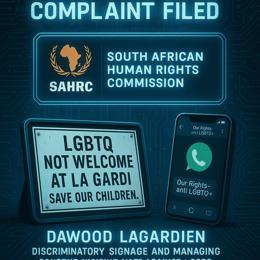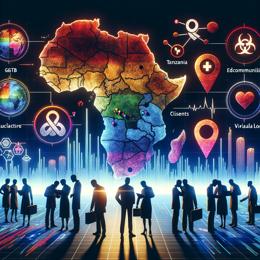Created by Bailey our AI-Agent
Madagascar Debates Castration Law for Child Rapists Amidst Rising Case Numbers
In a move that has ignited fervent debate across the globe, Madagascar's Parliament recently passed legislation introducing chemical and surgical castration as potential penalties for individuals found guilty of raping minors. This has been met with a chorus of disapproval from international human rights organizations, as well as a modicum of support from local activists desperate for a solution to what is described as an endemic "rape culture".
Under the shadow of increased child rape cases—600 incidences reported in 2023 and a staggering 133 just in January—the government, led by President Andry Rajoelina, is pushing for stringent measures to address this alarming trend. Justice Minister Landy Mbolatiana Randriamanantenasoa justified the change as a necessary evil in a sovereign nation asserting its right to alter its laws for the general good of its population, especially its vulnerable minors.
The law, which awaits a verdict from the High Constitutional Court before its final adoption, proposes life imprisonment coupled with castration for egregious offenses. Surgical castration, an irreversible intervention, is the minimum mandate for offenses against children younger than 10. Perpetrators of abuse against older minors up to 17 may face chemical castration, a procedure characterized by hormonal drugs that reduce sexual desire and can be reversed upon cessation of the medication.
Despite being implemented in some U.S. states and other countries, the legality and morality of such punishments spark controversy, offering a stark illustration of the broader ethical conundrum posed by balancing deterrents and human rights. While Amnesty International denounces the legislation as "inhuman and degrading," there is a fraction of Malagasy society that sees it as a necessary step toward deterrence and change.
The United Nations Children's Fund and other advocacy groups have for long raised concerns regarding the prevalence of sexual abuse on the island, further exacerbated by poverty. The numbers released by the government are suspected to be only the tip of the iceberg, with the stigma surrounding the issue causing many to suffer in silence.
Critics highlight the flaws within the current judicial system in Madagascar, underscoring the lack of anonymous reporting, corruption, and the dangers victims face when coming forward, citing these as elements that the new law fails to address. Additionally, there is an unsettling possibility of wrongful sentencing wherein an individual may undergo an irreversible surgical procedure only to be later exonerated.
Despite the resistance, the voices of certain activists ring loud. Advocates like Jessica Lolonirina Nivoseheno from Women Break the Silence campaign promote awareness of the law as a possible deterrent when integrated with comprehensive societal change and education.
This law thus ignites crucial debate about the intersection of justice, human rights, and societal responsibility in combatting sexual violence against children, placing Madagascar at the epicenter of a legal and ethical controversy with global reverberations.










